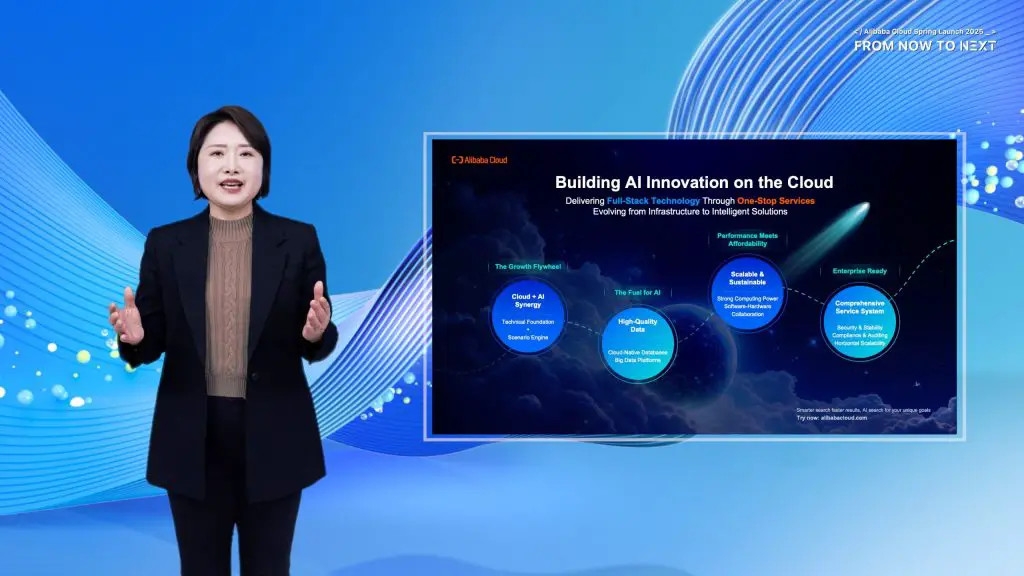Alibaba Cloud’s Spring Launch 2025 online event has recently concluded and covered the unveiling of a variety of AI models, tools, and infrastructure enhancements.


Targeting international clients and organizations, the new offerings expand the access to Alibaba Cloud’s foundational AI models and enhance infrastructure products. These models, available through Alibaba Cloud’s availability zones in Singapore, include the latest updates from its proprietary large language model (LLM) series, Qwen. These include the Mixture of Experts (MoE) model Qwen-Max, the reasoning model QwQ-Plus, the visual reasoning model QVQ-Max, and the multimodal model Qwen2.5-Omni-7b.
QwQ-Plus, an advanced reasoning model, specializes in deep analytical thinking, tackling complex challenges such as expert-level math problems and sophisticated QA tasks. On the other hand, QVQ-Max, a visual reasoning model, handles complex multimodal problems with impressive accuracy, supporting visual input and producing chain-of-thought outputs.
In addition to these models, Alibaba Cloud’s Platform for AI (PAI) has introduced significant upgrades to support scalable and cost-effective solutions for generative AI and LLMs. A standout feature is the PAI-Elastic Algorithm Service (EAS), which debuts distributed inference capabilities, enabling the use of a multi-node architecture for super-large models and ultra-long-text processing. This solution addresses the limitations of traditional single-node systems, boosting performance and efficiency. A notable improvement introduced by EAS is the prefill-decode disaggregation function, which has resulted in a 92% increase in concurrency and a 91% increase in tokens per second (TPS) when deployed with the Qwen2.5-72B model.
PAI-Model Gallery also received an upgrade, now offering nearly 300 open-source models, including the full range of Alibaba Cloud’s proprietary Qwen and Wan series models. The gallery facilitates seamless, no-code deployment and management, with additional features like model evaluation for performance insights and model distillation to reduce deployment costs.
To optimize data management in the AI era, Alibaba Cloud has integrated its AI inference capabilities, powered by Qwen, into its flagship cloud-native relational database, PolarDB. This integration eliminates the need for data shifting, enhancing both processing efficiency and data security, and streamlining text-centric workloads, such as conversational agent development, text embedding, and semantic similarity search. Additionally, the integration of AnalyticDB into Model Studio further streamlines the development of context-aware applications by connecting proprietary knowledge bases directly to AI models.
Alibaba Cloud also launched a new Qwen-enhanced AI search feature on its website, designed to help enterprises like SMEs accelerate solution discovery and strategic decision-making. This AI assistant provides access to scalable cloud solutions and free AI and cloud computing training resources.
To support its resellers and distributors, Alibaba Cloud introduced upgraded partner incentive policies, offering higher commission rates and greater flexibility alongside enhanced training and support resources to foster mutual growth.
Finally, Alibaba Group announced a groundbreaking $53 billion (RMB 380 billion) investment in cloud computing and AI infrastructure for the next three years. This investment, which surpasses the company’s total AI and cloud spending of the past decade, underscores Alibaba Cloud’s commitment to long-term innovation and solidifies its position as a leading global cloud provider. With 87 availability zones across 29 regions, Alibaba Cloud continues to expand its global infrastructure network.

